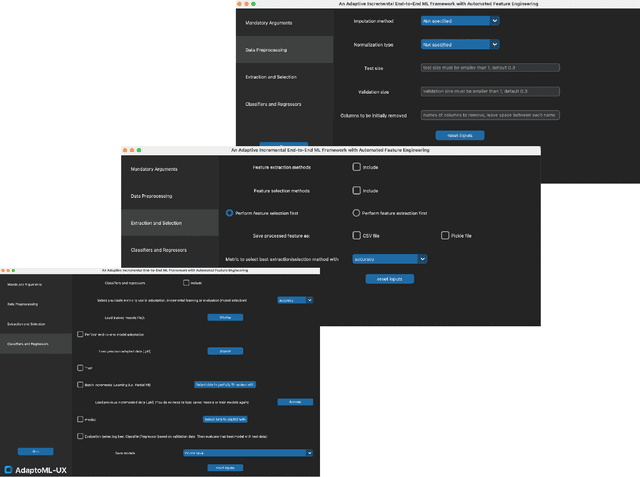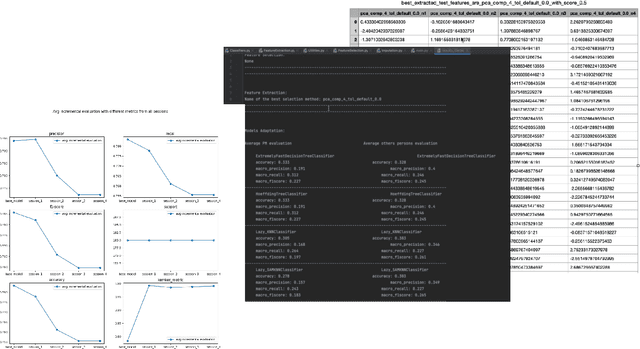Michael Sargious
AdaptoML-UX: An Adaptive User-centered GUI-based AutoML Toolkit for Non-AI Experts and HCI Researchers
Oct 22, 2024

Abstract:The increasing integration of machine learning across various domains has underscored the necessity for accessible systems that non-experts can utilize effectively. To address this need, the field of automated machine learning (AutoML) has developed tools to simplify the construction and optimization of ML pipelines. However, existing AutoML solutions often lack efficiency in creating online pipelines and ease of use for Human-Computer Interaction (HCI) applications. Therefore, in this paper, we introduce AdaptoML-UX, an adaptive framework that incorporates automated feature engineering, machine learning, and incremental learning to assist non-AI experts in developing robust, user-centered ML models. Our toolkit demonstrates the capability to adapt efficiently to diverse problem domains and datasets, particularly in HCI, thereby reducing the necessity for manual experimentation and conserving time and resources. Furthermore, it supports model personalization through incremental learning, customizing models to individual user behaviors. HCI researchers can employ AdaptoML-UX (\url{https://github.com/MichaelSargious/AdaptoML_UX}) without requiring specialized expertise, as it automates the selection of algorithms, feature engineering, and hyperparameter tuning based on the unique characteristics of the data.
 Add to Chrome
Add to Chrome Add to Firefox
Add to Firefox Add to Edge
Add to Edge